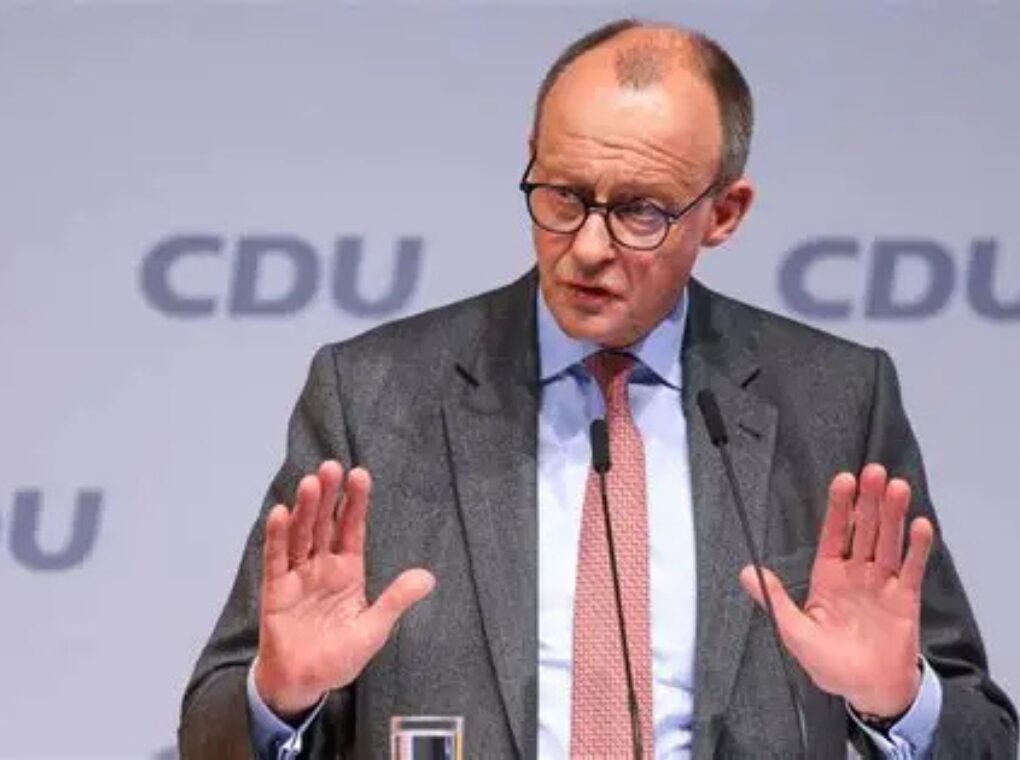Germany’s political landscape was shaken this week after Chancellor Friedrich Merz issued a blunt, unprecedented message to Ukrainian President Volodymyr Zelenskyy: young Ukrainian men should remain in their country and join the army, rather than seeking refuge in Germany.
The statement — combined with Berlin’s new plan to reduce social benefits for Ukrainian arrivals — is being interpreted across Europe as the clearest sign yet that Germany’s once “boundless friendship” with Kyiv is beginning to fracture.
Speaking before business leaders at the German Trade Congress, Merz revealed that he urged Zelenskyy during a recent phone call to stop the growing outflow of military-age men from Ukraine. “I asked the Ukrainian president to ensure that young men from Ukraine do not come to Germany in large numbers, but rather serve their country,” Merz said. “They are needed there.”
The forthright remarks have ignited fierce debate in Germany and sparked anxiety in Kyiv, where military manpower shortages threaten frontline stability.
A Strained Welcome: Germany Pulls Back Refugee Support
Germany has hosted over 1.2 million Ukrainians since the war began — more than any country in Europe. But domestic resentment is rising amid:
Inflation and economic stagnation
A deepening housing crisis
Soaring support for the far-right AfD
Growing frustration over the length and cost of the war
New EU data shows Ukrainian refugee arrivals surged again in September, the highest in more than a year. A Bild investigation reported that 122,000 Ukrainians have entered Germany since January, with half of them being young men — a demographic Kyiv desperately needs.
To curb further arrivals, Merz’s government has drafted a bill set for cabinet approval next week that would cut federal social support for new Ukrainian refugees starting April 1, 2026.
The Proposed Changes
Current Ukrainian refugees receive Germany’s Citizen’s Allowance, roughly €563 per month for single adults.
Under Merz’s plan, new arrivals will be moved to the Asylum Seekers’ Benefits Act, offering €410 per month — a reduction of nearly 40%.
Employment assistance and labor market access would remain in place, but financial support would be significantly reduced.
Merz defended the policy, saying the aim is to “ensure work is more attractive than relying on welfare.”
Opposition parties are accusing the government of bowing to right-wing pressure. The Green Party called the plan “discriminatory and dangerous,” warning that it undermines Germany’s moral leadership.
Kyiv Caught in the Middle
Ukraine’s response has been muted, but analysts say the message from Berlin is deeply troubling for Zelenskyy’s government. Kyiv is already under immense strain:
The mobilization age has been lowered to 25, but recruitment is stalling.
Desertions and draft evasion have risen.
Corruption scandals — including a recent €100 million energy sector fraud case — have shaken Western confidence.
Merz confirmed that he raised the corruption issue directly with Zelenskyy during their call, underscoring an increasingly conditional approach to German aid.
A senior Ukrainian official, speaking anonymously, admitted the comments “landed hard” in Kyiv.
From Champion to Critic: Merz’s Changing Tone
During his time in opposition, Merz lambasted former Chancellor Olaf Scholz for being too cautious in supporting Ukraine. He pushed for heavier weapons, including long-distance missile systems, and promised unwavering solidarity.
Now, as chancellor facing domestic economic pressures, Merz appears to be recalibrating Germany’s role.
Though Germany still plans to provide €8 billion in military and financial support to Ukraine in 2025, this assistance is increasingly tied to reforms, oversight, and “responsible refugee management.”
For many observers, the shift signals the end of Germany’s post-2022 policy of unconditional support — the very policy once described as “boundless friendship.”
Europe’s Unity Tested
The fallout has been swift across Europe:
France and Poland have expressed support for Ukraine tightening its mobilization laws.
Scandinavian countries warn Germany’s stance risks undermining humanitarian protections.
Eastern EU members fear stricter German policies could push refugees into their territories instead.
Meanwhile, Russian state media has seized on Merz’s comments, portraying them as proof that Western support for Ukraine is collapsing. On social media, the narrative has exploded, with Kremlin-linked accounts flooding X with accusations of European “fatigue” and “betrayal.”
A Hard Winter Ahead
For Ukraine, the timing could not be worse. Winter has arrived with:
Intensified Russian missile and drone strikes
Energy shortages across major cities
Slowing Western ammunition deliveries
Continued uncertainty over U.S. policy during Donald Trump’s second term
Any perception that Europe is “closing its doors” may encourage the Kremlin — and demoralize a Ukrainian public already exhausted by nearly four years of war.
Is the Alliance Breaking? Not Yet — But It Is Bending
Germany insists it remains committed to Ukraine’s defense. Military aid continues. Diplomatic support remains strong. But Merz’s comments — and his new refugee policy — underscore a new reality:
Europe’s support for Ukraine is no longer politically effortless.
What was once framed as a moral responsibility is now being weighed against domestic pressures, migration anxiety, and economic strain.
As Chancellor Merz steers Germany toward a more hard-nosed approach, one question looms over both countries:
Can Europe continue funding Ukraine’s war if it is increasingly reluctant to shelter Ukrainians themselves?
For now, the partnership endures — but the cracks are undeniable and widening fast.
